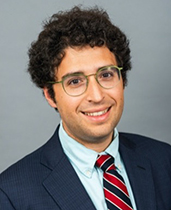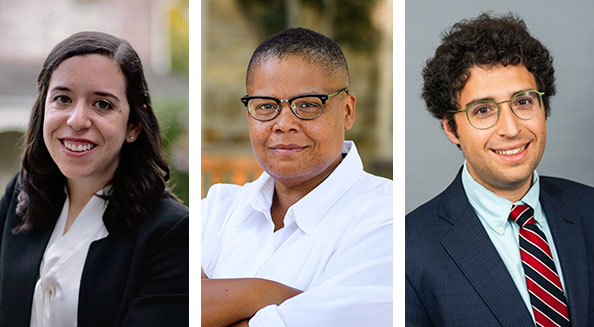Brian Libgober
Assistant Professor of Political Science and Law (by courtesy)
PhD, Government, Harvard University, 2018
Brian Libgober's research focuses on the political economy of American institutions, specializing in administrative policymaking, interest group politics, and financial regulation. As a political scientist and legal scholar, he is interested in the relationship between economic inequality, interest group power, and the design of legal institutions. He is also a senior research scholar at Yale Law School. In 2023, Libgober was recognized by the American Political Science Association with the Emerging Scholar in American Political Economy award, “given to a scholar not more than five years beyond the PhD who has made important contributions to the study of the American political economy.”
Libgober is also interested in issues of access to justice and has studied the extent and causes for racial discrimination in private legal markets. Recently, the National Science Foundation awarded Libgober and two collaborators over $400,000 to conduct studies following up on his solo-authored law review article, "Getting a lawyer while Black," which was also covered in a number of media outlets.
Libgober obtained his JD from the University of Michigan Law School in 2015 and MA in statistics from Harvard University in 2017. Prior to attending law school, he worked for President Obama’s re-election campaign in polling analytics.
Current Research
Lobbying. Libgober has various projects that investigate lobbying in American politics, including inequality in agency rulemaking.
Regulations. Libgober is studying the effectiveness of a cost-benefit analysis and reason-giving for reducing cognitive biases in federal regulations.
Race and Access to Justice. Libgober is studying how race impacts the ability of individuals to solve legal issues through courts and related legal institutions.
Political Participation of Refugees. Libgober is exploring how an immigrant’s origin country influences voting behavior and partisan preferences.
Selected Publications
Libgober, B., and B. Chen. 2023. Do administrative procedures fix cognitive biases? Journal of Public Administration Research and Theory. muac054. https://doi.org/10.1093/jopart/muac054
Libgober, B., and S. Rashin. 2023. What public comments during the rulemaking do (and why). American Politics Research. https://doi.org/10.1177/1532673X231175686
Libgober, B., and M. Richardson. 2023. Identifying bureaus with substantial personnel change during the Trump administration: A Bayesian approach. PLoS ONE 18 (1): e0278458. https://doi.org/10.1371/journal.pone.0278458
Abi-Hassan, S., J. Box-Steffensmeier, D. Christenson, A. Kaufman, and B. Libgober. 2023. The ideologies of organized interests and amicus curiae briefs: Large-scale, social network imputation of ideal points. Political Analysis 1-18. doi:10.1017/pan.2022.34
Carpenter, D., and B. Libgober. 2023. "Administrative politics with clear stakes and venues: Strategic commenting upon Federal Reserve debit card regulations." In Accountability Reconsidered: Voters, Interests, and Information in U.S. Policymaking, ed. by C. Cameron, B. Canes-Wrone, S. Gordon and G. Huber, 311–33. Cambridge, U.K.: Cambridge University Press.
Libgober, B. 2020. "Strategic proposals, endogenous comments, and bias in rulemaking." The Journal of Politics 82(2): 642–56.
Libgober, B. 2020. "Meetings, comments, and the distributive politics of rulemaking." Quarterly Journal of Political Science 15(4): 449–81.
Carpenter, D., D. Judge-Lord, B. Libgober, and S. Rashin. 2020. "Data and methods for analyzing special interest influence in rulemaking." Interest Groups & Advocacy 9: 425–35.
Libgober, B. 2020. "Getting a lawyer while Black: A field experiment." Lewis & Clark Law Review 24(1): 52–108.

